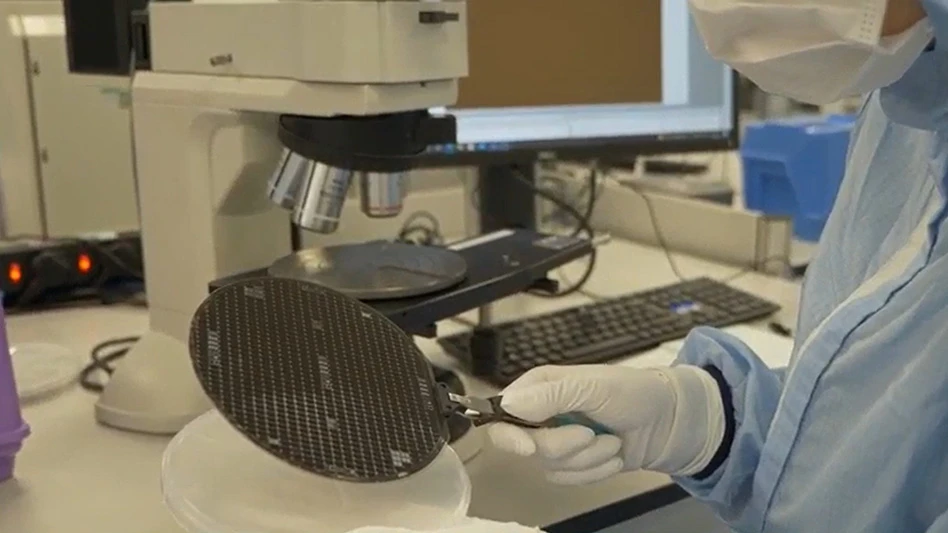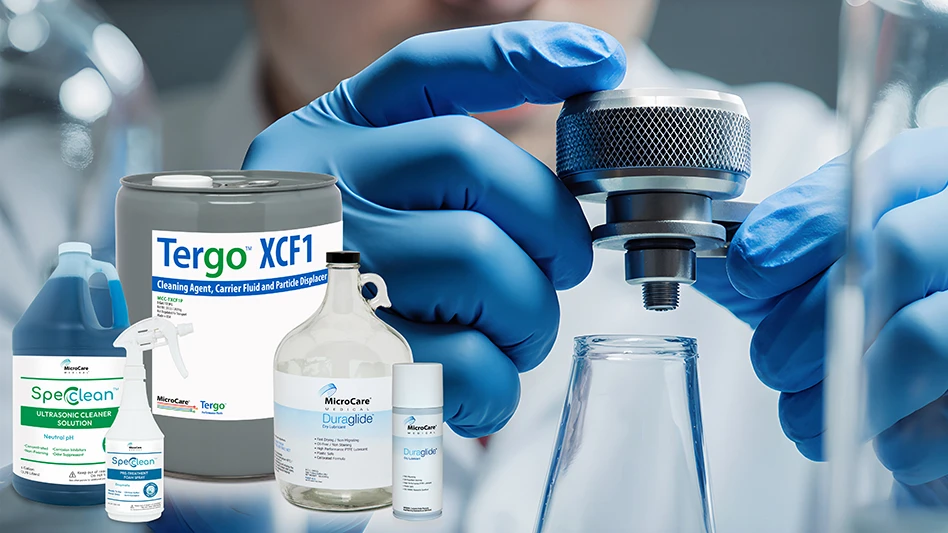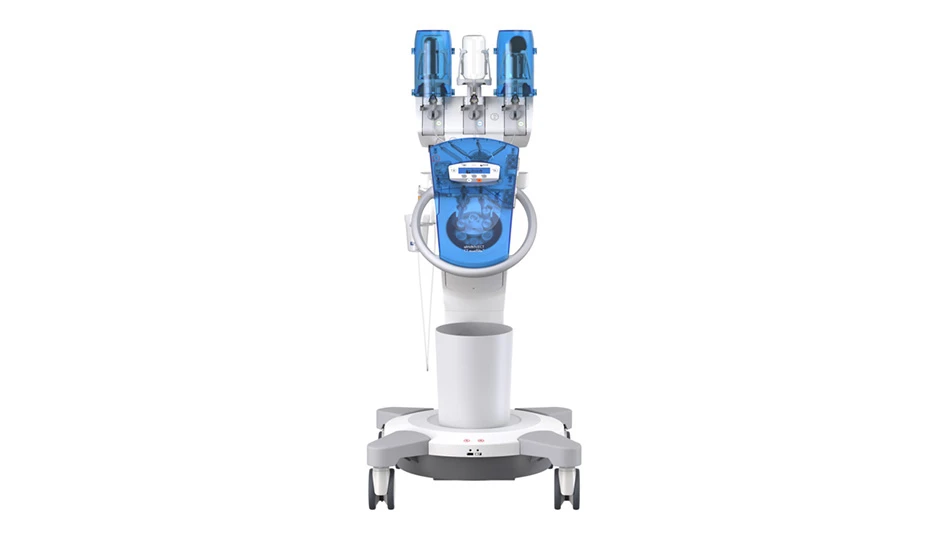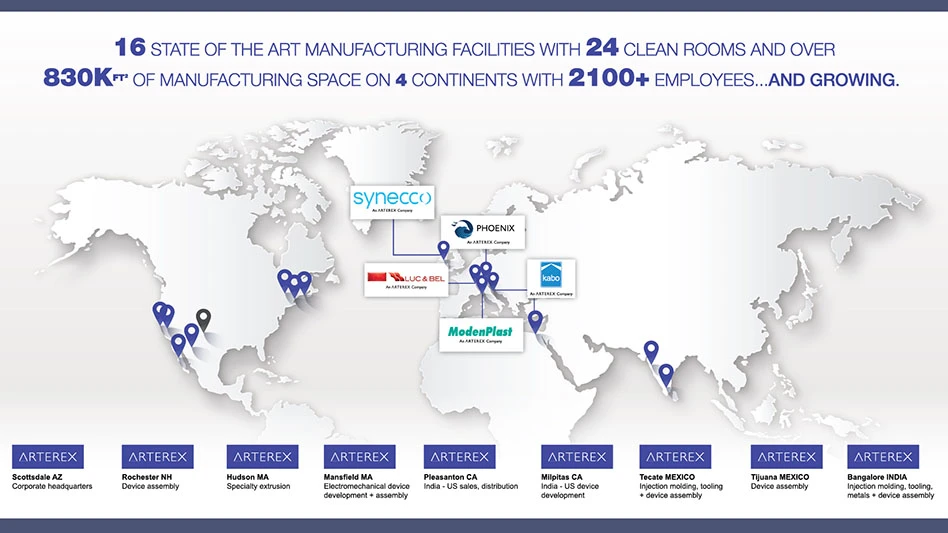About 15 years ago, MIT professors Robert Langer and Michael Cima had the idea to develop a programmable, wirelessly-controlled microchip that would deliver drugs after implantation in a patient’s body. Now, the MIT researchers, and scientists from MicroCHIPS Inc., have successfully used such a chip to administer daily doses of an osteoporosis drug normally given by injection.
The results represent the first successful test of such a device and could help usher in a new era of telemedicine – delivering health care over a distance, according to Langer.
 Professors Robert S. Langer (right) and Michael J. Cima speak in the Cima Lab at the David H. Koch Institute for Integrative Cancer Research at MIT. (Photo Credit: M. Scott Brauer) Professors Robert S. Langer (right) and Michael J. Cima speak in the Cima Lab at the David H. Koch Institute for Integrative Cancer Research at MIT. (Photo Credit: M. Scott Brauer) |
“You could literally have a pharmacy on a chip,” says Langer, the David H. Koch Institute Professor at MIT. “You can do remote control delivery, you can do pulsatile drug delivery, and you can deliver multiple drugs.”
In the new study, funded and overseen by MicroCHIPS, scientists used the programmable implants to deliver an osteoporosis drug called teriparatide to seven women aged 65 to 70. The study found that the device delivered dosages comparable to injections, and there were no adverse side effects.
These programmable chips could dramatically change treatment not only for osteoporosis, but also for many other diseases, including cancer and multiple sclerosis.
“Compliance is very important in a lot of drug regimens, and it can be very difficult to get patients to accept a drug regimen where they have to give themselves injections,” says Cima, the David H. Koch Professor of Engineering at MIT.
Achieving Precision
The MIT research team started working on the implantable chip in the mid-1990s. John Santini, then a University of Michigan undergraduate visiting MIT, took it on as a summer project under the direction of Cima and Langer. Santini, who later returned to MIT as a graduate student to continue the project, is also an author of the research paper.
In 1999, the MIT team published its initial findings in Nature, followed by the founding of MicroCHIPS and licensing of the microchip technology from MIT. The company refined the chips, including adding a hermetic seal and a release system that works reliably in living tissue.
 Professors Robert S. Langer and Michael J. Cima work together in biotechnology and have developed a new implantable medical device that allows repeated wireless drug delivery in lieu of injections. (Photo Credit: M. Scott Brauer) Professors Robert S. Langer and Michael J. Cima work together in biotechnology and have developed a new implantable medical device that allows repeated wireless drug delivery in lieu of injections. (Photo Credit: M. Scott Brauer) |
The human clinical trial began in Denmark in January 2011. Chips, implanted during a 30-minute procedure at a doctor’s office using local anesthetic, remained in the patients for four months. The implants proved safe, and patients reported they often forgot they even had the implant, Cima says.
Chips used in the study stored 20 doses of teriparatide, individually sealed in tiny reservoirs about the size of a pinprick. The reservoirs are capped with a thin layer of platinum and titanium that melts when a small electrical current is applied, releasing the drug. MicroCHIPS is now working on developing implants that can carry hundreds of drug doses per chip.
Because the chips are programmable, the scheduling of dosages can be in advance, or triggered remotely by radio communication over a special frequency called Medical Implant Communication Service (MICS).
Once a version of the implant that can carry a larger number of doses is ready, MicroCHIPS plans to seek approval for further clinical trials, says Robert Farra, president and chief operating officer, MicroCHIPS. The company has also developed a sensor that can monitor glucose levels. Eventually such sensors could combine with chips that contain drug reservoirs, creating a chip that can adapt drug treatments in response to the patient’s condition.
Adapted from an Original Release by Anne Trafton, MIT New Office; Reprinted with Permission of MIT News, http://web.mit.edu/newsoffice/

Explore the April 2012 Issue
Check out more from this issue and find your next story to read.
Latest from Today's Medical Developments
- Kistler, ATS Life Sciences Systems scale production with medical device assembly line
- Platinum Tooling expands internal coolant tool offering
- US metalworking machinery orders through November 2025 reveal 17.8% increase from first 11 months of 2024
- Precision metering pumps for medical device manufacturing
- #81 Manufacturing Matters - Additive Manufacturing Analysis, Trends, Forecasts with Terry Wohlers
- Velosity opens precision development center to accelerate medical device product launch
- A look at the latest in the defense industry
- EMCO manufacturing showroom offers customers hands-on milling, machining engagement





